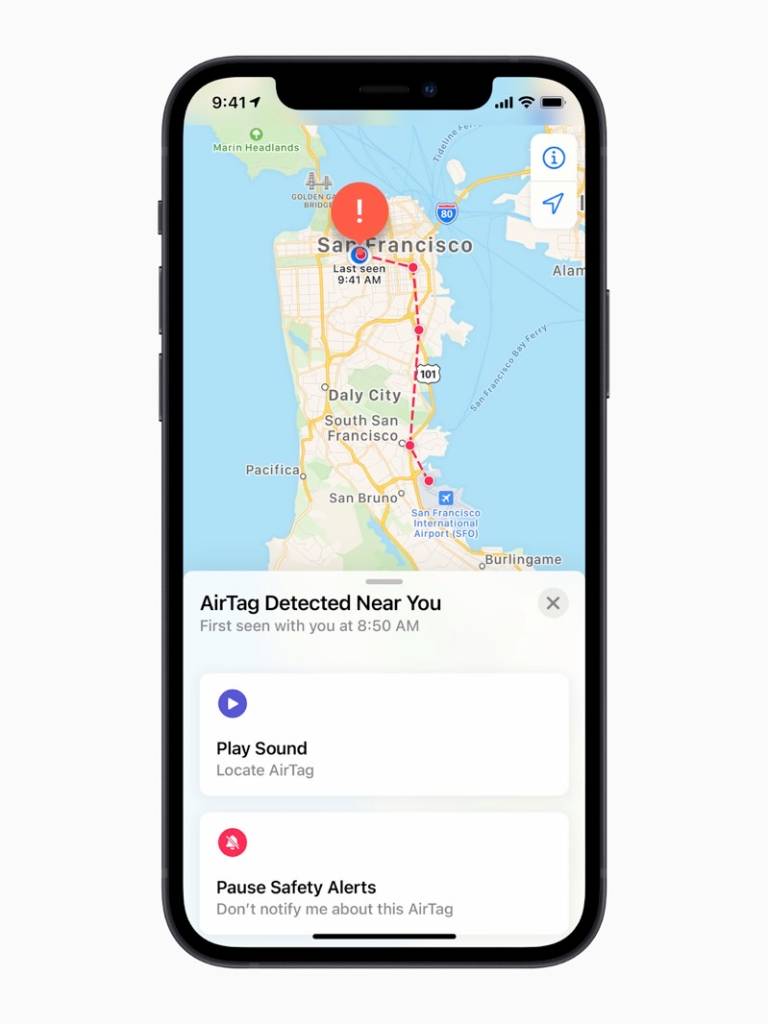Even before Apple unveiled the AirTag tracker, we learned that the company had built protections into iOS 14.5 to prevent AirTag abuse. iOS will warn iPhone users when it detects an AirTag tracker following them around so that they can disable it and prevent stalkers from keeping track of their location. An AirTag that’s been away from the owner for three days will also make a sound when moved so that Android users could discover it as well. Apple also explained that the AirTags were not designed to track children or pets, and the privacy and security features above explain why it’s difficult to track people using AirTags.
But a nonprofit dealing with violence against women has identified one situation where the AirTags can be used to track unsuspecting victims without triggering the protection that Apple has in place to prevent stalking.
The National Network to End Domestic Violence (NNEDV) group has addressed tracking technologies like AirTag in an interview with FastCompany, explaining one scenario where Apple’s protections might fail.
Apple has a support document where it details how AirTag tracking works and the security and privacy protections built into the Find My tracking service:
AirTag has also been designed to discourage unwanted tracking. To discourage tracking without your knowledge, Find My will notify you if an unknown AirTag is seen moving with you over time. An AirTag that isn’t with the person who registered it for an extended period of time will also play a sound when moved so you can find it, even if you don’t use an iOS device. If you detect an unknown AirTag, use the steps below to learn about the AirTag and how to disable it.
Apple did not initially explain how quickly the AirTag “moving with you” alert might happen if you’re an iPhone user who is being tracked with an AirTag, but the company told the blog that it would occur when you arrive at your home, which is the address you stored in your Apple “Me” card, or at specific locations that your phone learned you frequently visit.

But this won’t work for Android users who might be tracked with an AirTag. They’ll only be notified that they might have an AirTag tracker on them after three days. NNEDV said that might be a problem for Android users who live with abusive spouses who might use AirTags to track their victims.
“Three days won’t work if you’re going home every day to the same person tracking you… That’s a learning space [that] hopefully Apple will consider and work to build in protections with that threat model,” NNEDV technology safety specialist Corbin Streett told the blog. “[Apple] is thinking about the threat model where it’s a stalker who is walking by someone on the street they don’t know — that stranger danger model — but what about when it is the person you come home to every day?”
Fast Company points out that Apple said in recent interviews that the three-day rule might be lengthened or shortened in the future.








